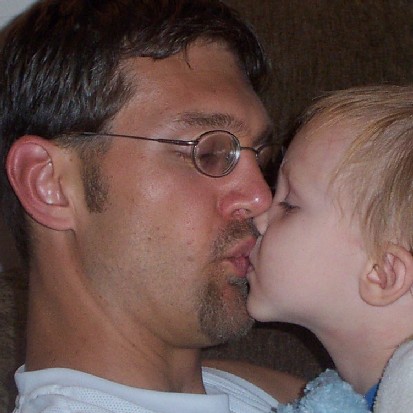I’m struck by the comparisons between David and Jesus in this story. Absalom, David’s beloved son, has betrayed his father’s trust. He has stolen away the hearts of many in Israel, and he is coming to Jerusalem with plans to overthrow David and take the throne for himself. In haste, a brokenhearted David gathers up his household and flees the city.
The allusions to Christ begin with David’s attitude toward God. David’s words “Behold, here I am, let him [i.e., the Lord] do to me what seems good to him” (v 26) sound an awful lot like Jesus’ prayer “Not my will, but yours be done.” Like Jesus, David realizes that some of his own close confidants are among those who have turned against him (v 31). And again like Jesus, David pours out his tears and his prayers on the Mount of Olives as the tragic drama unfolds (v 30).
But there is one critical contrast here. In this scene from David’s life, a son is coming against his father; but in Jesus’ case, it was the Father who came against His Son. Like David, Jesus prayed to God for deliverance; but unlike David, Jesus did not get it. God offered David a drink from the cup of salvation; He extended to Jesus the cup of wrath.
As I go up on the Mount of Olives with David and overhear his tearful prayers, I cannot help but see in the shadows the form of Another, weeping, betrayed, cast off by One He held dear.
You were broken that I might be healed
You were cast off that I might draw near
You were thirsty that I might come drink
Cried out in anguish that I might sing
You knew darkness that I might know light
Wept great tears that mine might be dried
Stripped of glory that I might be clothed
Crushed by Your Father to call me Your own
How deep is Your love
How high and how wide is Your mercy
How deep is Your grace
Our hearts overflow with praise
To You
~ Stephen Altrogge


<< Home